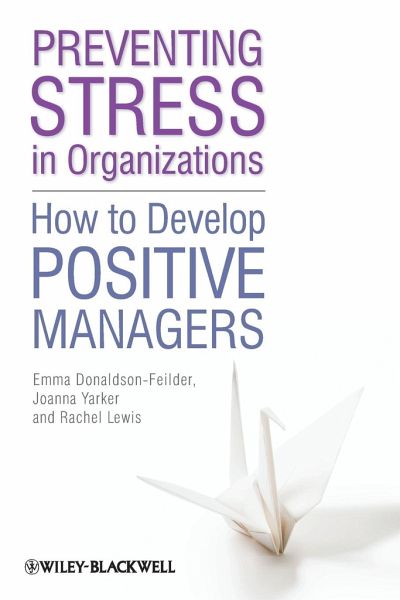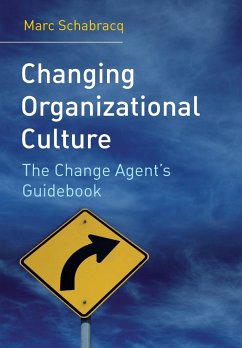
Preventing Stress in Organizat
Versandkostenfrei!
Versandfertig in über 4 Wochen
47,99 €
inkl. MwSt.
Weitere Ausgaben:

PAYBACK Punkte
24 °P sammeln!
Preventing Stress in Organizations: How to DevelopPositive Managers offers an innovative, evidence-based approachto help managers prevent and reduce workplace stress in theirstaff.Winner of the 2013 BPS Book Award - Practitioner TextcategoryProvides information on the critical skills managers mustdevelop in order to prevent stress in their staff, and the keyongoing behaviours that promote a healthy work environmentShows practitioners in occupational psychology, HR, Health andSafety and related professions how positive management can beintegrated into an organizationâEUR(TM)s existingpractices...
Preventing Stress in Organizations: How to DevelopPositive Managers offers an innovative, evidence-based approachto help managers prevent and reduce workplace stress in theirstaff.
Winner of the 2013 BPS Book Award - Practitioner Textcategory
Provides information on the critical skills managers mustdevelop in order to prevent stress in their staff, and the keyongoing behaviours that promote a healthy work environment
Shows practitioners in occupational psychology, HR, Health andSafety and related professions how positive management can beintegrated into an organizationâEUR(TM)s existingpractices and processes
Serves as an essential guide for managers themselves on how toincorporate proven stress management skills into their everydayinteractions with team members
Balances rigorous research grounding with real-world vignettes,case studies and exercises
Winner of the 2013 BPS Book Award - Practitioner Textcategory
Provides information on the critical skills managers mustdevelop in order to prevent stress in their staff, and the keyongoing behaviours that promote a healthy work environment
Shows practitioners in occupational psychology, HR, Health andSafety and related professions how positive management can beintegrated into an organizationâEUR(TM)s existingpractices and processes
Serves as an essential guide for managers themselves on how toincorporate proven stress management skills into their everydayinteractions with team members
Balances rigorous research grounding with real-world vignettes,case studies and exercises













